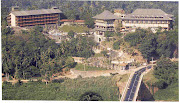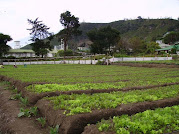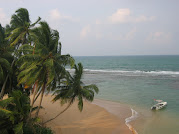Sri Lanka Holidays: Masters versus Commanders. bunpeiris
Tour the beautiful island of Sri Lanka, The Land of Delights with Riolta Sri Lanka Holidays. Total Holiday Experience awaits with you in The Land of Delights.
British Colonial Masters Versus Commanders of the herds of Ceylonese Elephants
AES Reprint ISBN 81-206-1666-9
Those who have lived much in the jungle in Ceylon, & had constant opportunities of watching the habits of wild elephants, have witnessed instances of the submission of herd to their leaders, that suggests an inquiry of singular interest as to the means adopted by the latter to communicate with distinctness, orders which are observed with the most implicit obedience by their followers.
The following narrative of an adventure in the great central forest toward the north of the island, communicated to me by Major Skinner, who was engaged for some time in surveying & opening roads through the thickly-wooded districts there, will serve better than any abstract description to convey an idea of the conduct of a herd on such occasion:-
“The case you refer to struck me as exhibiting something more than ordinary brute instinct, & approached nearer to reasoning powers than any other instances I can now remember. I cannot do justice to the scene, although it appeared to me at the time to be so remarkable that it left a deep impression in my mind.
“In the height of the dry season in Neuera-Kalawa, you know the streams are all dried up, & the tanks nearly so. All animals are then sorely pressed for water, & they congregate in the vicinity of those tanks in which there may remain ever so little of the precious element.
“During one of those seasons I was encamped on the bund or embankment of a very small tank, the water in which was so dried that it surface could not have exceeded an area of 500 square yards. It was only pond within many miles, & I knew that of necessity a very large herd of elephants, which had been in the neighbourhood all day, must resort to it at night.
“On the lower side of the tank, in a line with the embankment, was a thick forest, in which the elephants sheltered themselves during the day. On the upper side & all around the tank there was a considerable margin of open ground. It was one of those beautiful bright, clear, moonlight nights, when objects could be seen almost as distinctly as by day, & I determined to avail myself of the opportunity to observe the movement of the herd, which had already manifested some uneasiness at our presence
The locality was very favorable for my purpose, & an enormous tree projecting over the tank afforded me a secure lodgment in its branches. Having ordered the fires of my camp to be extinguished at an early hour, & all my followers to retire to rest, I took up my post of observation on the overhanging bough; but I had to remain for upwards of two hours before anything was to be seen or heard of the elephants, although I knew they were within 500 yards of me.
At length, about the distance of 300 yards from water, an unusually large elephant issued from the dense cover, & advanced cautiously across the open ground to within 100 yards from the tank, where he stood perfectly motionless. So quiet had the elephants become (although they had been roaring & breaking the jungle throughout the day & evening), that not a movement was now to be heard. The huge vidette remained in his position, still as a rock, for a few minutes, & then made three successive stealthy advances of several yards (halting for some minutes between each, with ears bent forward to catch the slightest sound), & in this way he moved slowly up to the water’s edge.
Still he did not venture to quench his thirst, for though his fore feet were partially in the tank & his vast body was reflected clear in the water, he remained for some minutes listening in perfect stillness. Not a motion could be perceived in himself or his shadow. He returned cautiously & slowly to the position he had at first taken up emerging from the forest. Here in a little while he was joined by five others, with which he again proceeded as cautiously, but less slowly than before, to within a few yards of the tank, & then posted his patrols.
He then re-entered the forest & collected around him the whole herd, which must have amounted to between 80 to 100 individuals,-led them across the open ground with the most extraordinary composure & quietness, till he joined the advanced guard, when he left them for a moment & repeated his former reconnaissance at the edge of the tank.
After which, having apparently satisfied himself that all was safe, he returned & obviously gave the order to advance, for in a moment the whole herd rushed into the water with a degree of unreserved confidence, so opposite to the caution & timidity which had marked their previous movements, that nothing will ever persuade me that there was not rational & preconcerted co-operation throughout the whole party, & a degree of responsible authority exercised by the patriarch leader.
When the poor animals (1) had gained possession of the tank (the leader being the last to enter), they seemed to abandon themselves to enjoyment without restraint or apprehension of danger. Such a mass of animal life I had never seen huddled together in so narrow a space. It seemed to me as though they would have nearly drunk the tank dry.
I watched then with great interest until they had satisfied themselves as well in bathing as in drinking, when I tried ho small a noise would apprise them of the proximity of unwelcome neighbours. I had but to break a little twig, 7 the solid mass instantly took to flight like a herd of frightened deer, each of the smaller calves being apparently shouldered & carried along between two of the other ones.
Uda Walawe National Park, Sri Lanka
Minneriya National Park, Sri Lanka
Kaudulla National Park, Sri Lanka
Ruhuna Yala National Park, Sri Lanka
Wasgomuwa National Park, Sri Lanka
Chapter 111 ELEPHANT SHOOTING













































































































0 Comments:
Post a Comment